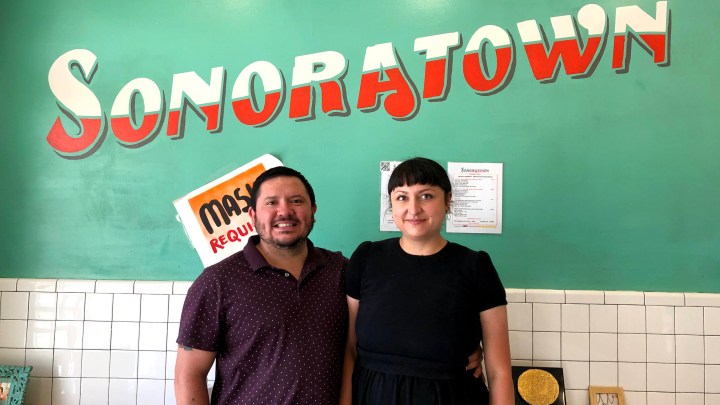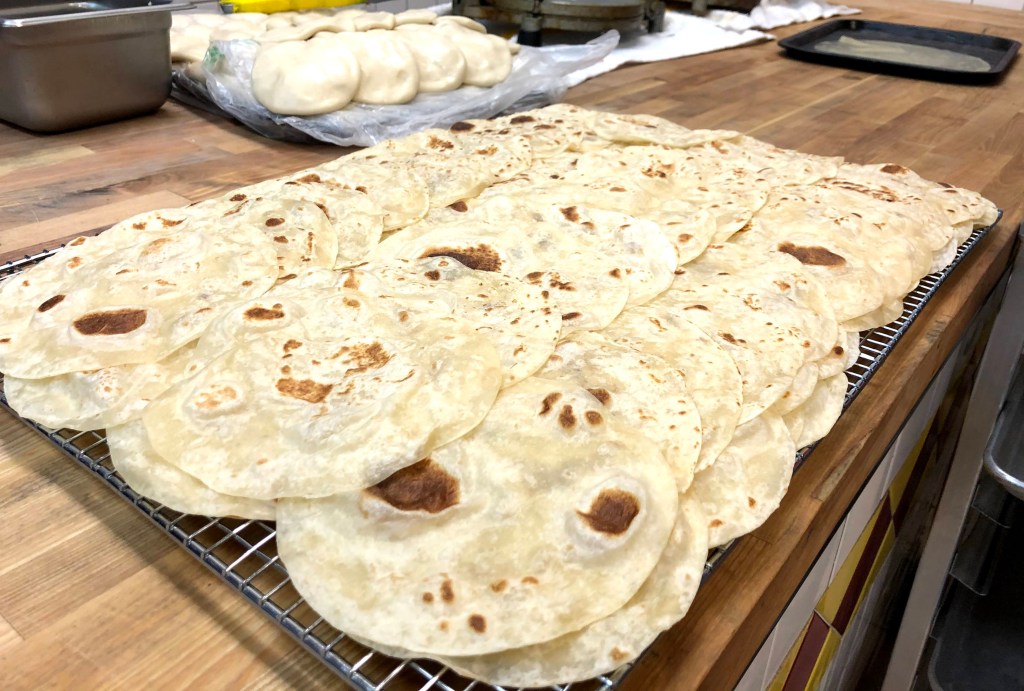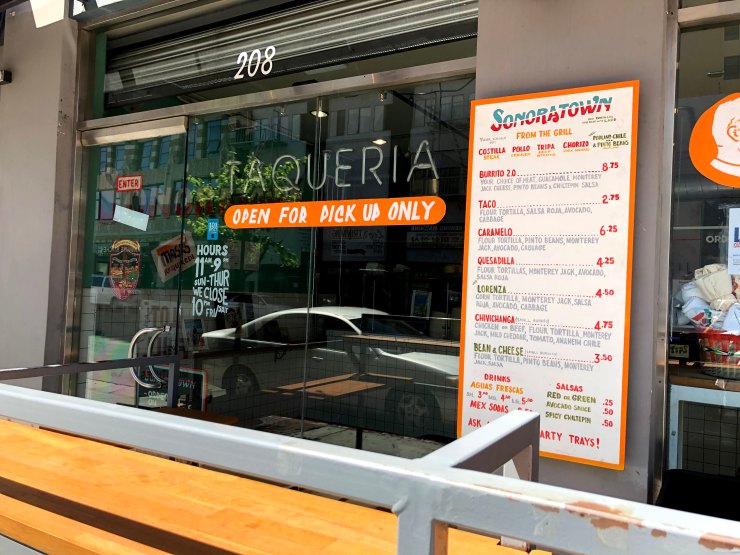
How a Los Angeles taqueria pivoted to survive the pandemic
How a Los Angeles taqueria pivoted to survive the pandemic

Sonoratown is a taqueria in downtown Los Angeles that specializes in food from the northern Mexican state of Sonora, which is known for cooking over mesquite wood fire and its flour tortillas.

Teo Diaz and Jennifer Feltham opened Sonoratown in 2016 to pay homage to the small border town in Sonora where Diaz grew up, San Luis Río Colorado.
“When I first met Teo, he drove me all the way to his hometown to eat these tacos,” Feltham said. “Once we got there and tried the tacos, there wasn’t one that equaled that here in Los Angeles.”
Sonoran-style tacos at Sonoratown are made with salted short rib, cooked over a mesquite fire, topped with avocado puree, cabbage and chile de árbol salsa, then served with a side of grilled green onions and radishes.
But to make these Sonoran-style tacos and burritos, Diaz and Feltham need to use Sonoran flour for their tortillas, which are handmade.
“Flour grows really well there,” Diaz said. “It just has this different texture that we weren’t able to find here.”
In the beginning, Feltham would travel about five hours by car to the Arizona-Mexico border and load up a truck with bags of Sonoran flour, then drive back to Los Angeles. She would make this journey about once a month. But as their business grew, keeping up with supply and demand became more challenging, and the trips to the border were more frequent.

“My mom started helping us because she lives right on the border,” Diaz said. “And she started crossing it for us. And we still go pick it up [from her] like once a month.”
When the pandemic hit in March 2020, the usual downtown L.A. lunch rush stopped. On top of that, they feared their supply chain would get even more complicated because of difficulties getting to the border. So Diaz and Feltham had to pivot to survive.
“When we closed the dining room, we took over all of this dining room space,” Feltham said. “We started selling things, like a little bodega,” or small grocery store.
“Yeah, we’re selling, like, hand sanitizer, toilet paper,” Diaz added.
They also had to spread out their operations and their workers to maintain social distancing. So, they took over an old Chinese restaurant about 3 miles from their taqueria to use that space for their handmade tortillas.
“We realized that we were able to, for the first time, offer large quantities of our food, which we hadn’t before because we were serving, like, lunchtime,” Feltham said. “So pretty quickly, we were able to up our check averages and match our pre-pandemic sales within a couple months.”

Feltham and Diaz are in the process of opening a second location as well as finding a solution to their supply chain troubles.
“We were able to send out a sample of our flour to a lab once the pandemic started,” Feltham said. “We were able to get the exact chemical makeup of our specific type of flour.”
The pair is currently shopping it to flour mills in the United States in hopes that one can produce a blend that will be a good substitute for the unique Sonoran flour they need.
“We’ll just continue to keep pivoting as many times, in as many different ways, as we can,” Feltham said. “Whatever comes, we will try our best.”
There’s a lot happening in the world. Through it all, Marketplace is here for you.
You rely on Marketplace to break down the world’s events and tell you how it affects you in a fact-based, approachable way. We rely on your financial support to keep making that possible.
Your donation today powers the independent journalism that you rely on. For just $5/month, you can help sustain Marketplace so we can keep reporting on the things that matter to you.

















